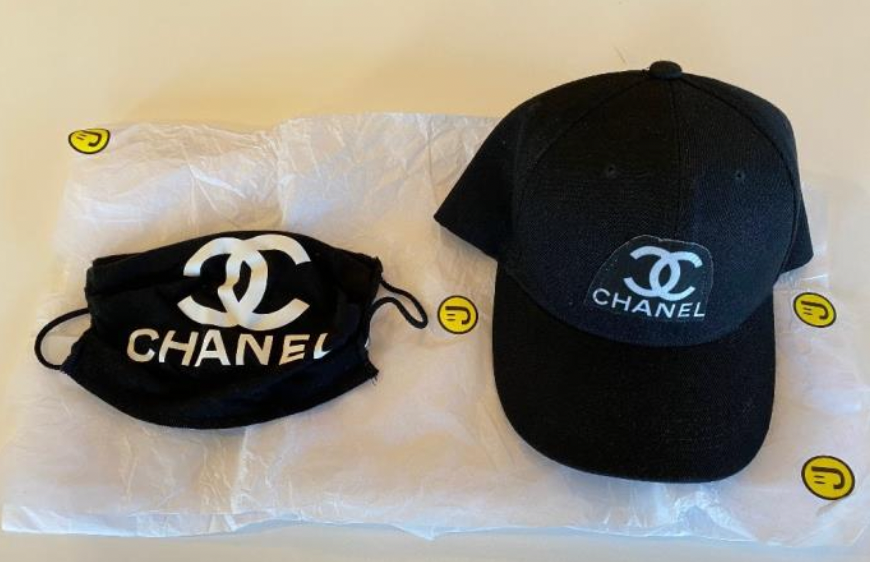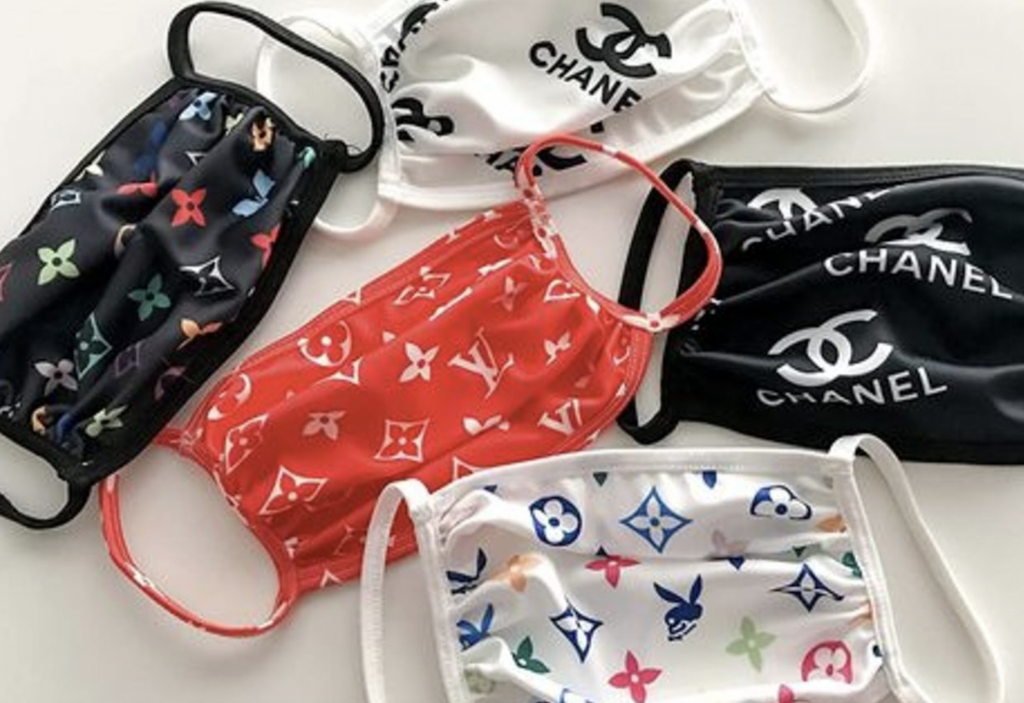Chanel is accusing a Miami-based retailer of running afoul of federal trademark law by using its famous double “C” logo on garments and accessories without the authorization to do so and intentionally confusing consumers in the process. For the most part, the trademark counterfeiting, trademark infringement, false designation of origin, trademark dilution, and unfair competition complaint that Chanel filed against DESIGNER-ISH and a number of affiliated defendants (the “defendants”) in a New York federal court this month is a run-of-the-mill trademark case that luxury brands routinely file against third parties for making unauthorized uses of their valuable trademarks by way of counterfeit goods – save for one aspect: some of the goods at issue in this case are face masks.
According to the complaint, Chanel claims that DESIGNER-ISH and co. are offering up apparel and accessories – from denim jackets and t-shirts to baseball caps and face masks – “bearing unauthorized reproductions, counterfeits, copies and colorable imitations of the Chanel trademarks via [their] website Sojara.com, Instagram and in Pop-Up and other retail stores” across the U.S., in furtherance of a model that DESIGNER-ISH says sees it “taking new and vintage clothing, rework[ing] it to create ORIGINAL one of a kind, handcrafted pieces, [and thereby,] giving it new life.”
Despite sending cease and desist letters to the defendants in connection with their sale of the allegedly infringing products, Chanel claims that they have “continued to advertise, distribute, offer for sale, and/or sell the products knowing the products bear infringements and/or counterfeits of the Chanel trademarks.” And in fact, Chanel claims that the defendants are “engaging in a deliberate effort to cause confusion and mistake among the consuming public as to the source, affiliation and/or sponsorship of [the Chanel-branded] products and, to gain … the benefit of the enormous goodwill associated with the Chanel trademarks.”
By using Chanel’s double “C” logo on products that are not affiliated with or endorsed by Chanel, the famed fashion house argues that the defendants are benefitting from the “enormous value and recognition” that is associated with those marks given that Chanel’s marks “are well known to the consuming public and trade as identifying and distinguishing Chanel exclusively and uniquely as the source of origin of the high-quality products to which the marks are applied.”
With such unauthorized “advertising, distributing, offering for sale, and/or selling” of the allegedly infringing products in mind, Chanel alleges that the defendants are “likely to cause confusion and mistake among the consuming public that said products are being offered to the consuming public with the sponsorship or approval of Chanel,” and have “injured Chanel’s public image and business reputation and/or diluted the distinctive quality of Chanel’s trademarks.” As such, Chanel is seeking injunctive relief to bar them from selling such products, as well as damages, attorney fees and “such other relief as the Court deems just and proper.”

Not the first company to file a trademark-centric suit over face masks, since the onset of the COVID-19 pandemic, 3M has garnered the title of one of the most prolific fighters of the unauthorized sale of branded masks – filing a still-growing number of lawsuits accusing unaffiliated third parties of attempting “to confuse and deceive” bulk mask-buyers, such as various city and state officials, into believing that they were authorized distributors of 3M’s products, and jacking up prices for the in-demand respirators in the process.
While 3M does not assert in many of these suits that the masks being offered up are counterfeit or otherwise infringing, it does take issue with companies use of its marks when they are not authorized distributors of any of 3M’s products. In one such suit, 3M argued that “by using 3M’s famous marks in [its] promotional materials and product listings, and holding itself out to be an authorized distributor of 3M products,” a company called Rx2Live “confused and deceived consumers,” and thus, engaged in trademark infringement.
All the while, as masks have become an everyday reality, they have also become a fashion category in their own right, with brands like Louis Vuitton, Burberry, Fendi, and buzzy upstart Marine Serre, among others, rolling out branded face coverings to meet mounting consumer demand and filing trademark applications for registration in connection with such new uses of their names and/or logos (namely, in classes 9 and 10, for various types of “protective” and “respiratory masks”), presumably in order to make counterfeiting claims in cases like this one. (It is worth noting that while Chanel includes a laundry list of goods for which it maintains registrations for its double “C” logos, it does not list face masks or coverings as among the “relevant products”).
In most instances, even before brands began offering up logo-emblazoned face masks, fakes hit the web en masse – with a plethora of fake designer face masks in all the shapes, fabrics, and logos imaginable inundating marketplace sites in the U.S. and beyond, prompting at least some brands to take action. Last year, Tommy Hilfiger, for instance, filed a trademark infringement and passing off suit with the Delhi High Court against two Tamil Nadu-based companies for making masks with the New York-headquartered company’s name and logos on them, and offering them up on e-commerce Indiamart, among other sites. In a decision late last year, the court sided with Tommy Hilfiger, awarding it a preliminary injunction.
Meanwhile, brands have been urged to act quickly when it comes to jurisdictions like China, where there is a substantial risk that trademark-squatters and counterfeiters “will apply to register [the marks of] well-known brands” before the brands, themselves, according to a client note from Cowan Liebowitz & Latman. “China and many other countries are first-to-file jurisdictions, which means that the first person or entity applying to register the mark in that country may obtain prior rights, thereby, creating an obstacle to anyone else’s registration and use of that mark to manufacture or sell the specified goods.”
“Opposing such applications after the fact can be an expensive and uphill battle,” the note states, also encouraging brands to “consider applying as early as possible to register your trademark for face masks in countries where you manufacture or sell them or anticipate possible counterfeiting issues” on the basis that they “may encounter adverse publicity issues or liability claims associated with the sale and use of defective or ineffective counterfeit face masks.”
It is unclear how long masks will serve as a category of their own, as vaccine roll outs gain steam and the notion of a mask-less future does not appear to be too far off. But in the meantime, a quick perusal of brand name face masks on Google reveals a sizable number of counterfeit masks on sites like Etsy, Poshmark, Rebubble, and Amazon, a nod to the uphill and enduring battle that is trademark enforcement.
The case is Chanel, Inc. v. JARA EISEN, et al., 1:21-cv-03238 (SDNY)














